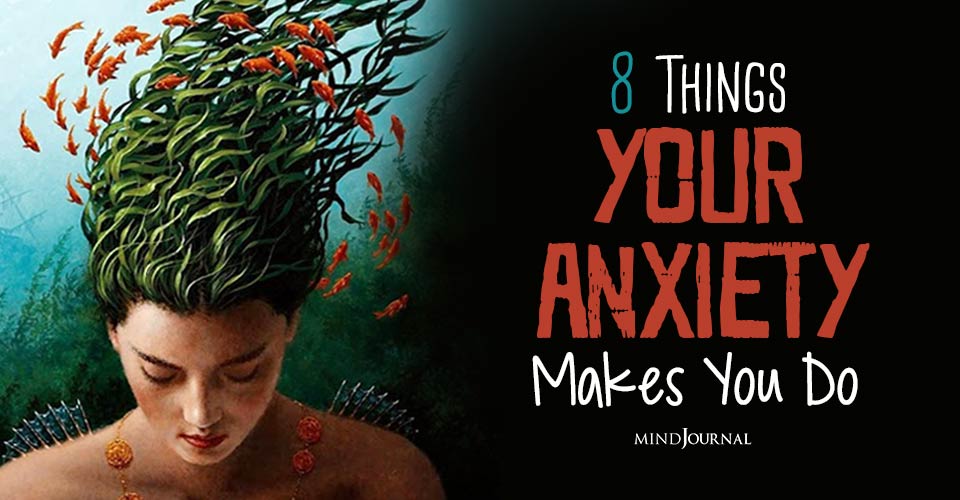Did you know that over 284 million people around the world suffer from anxiety disorders? Anxiety is our body’s natural response to stress. Many people feel anxious while going for a job interview, while some others may experience anxiety when going to a social event.
Everyone experiences anxiety differently and sometimes it can manifest in subtle ways that can be really difficult to detect.
In this article, we are going to talk about the most unusual symptoms of anxiety.
8 Unusual Things You Do Because Of Anxiety
1. You always imagine the worst outcomes
When you have anxiety, you naturally over-analyze everything and predict the worst possible future, even when it is highly unlikely. You imagine yourself failing, for no reason, thanks to your tendency to overthink and start dreading an uncertain future.
Your emotions get out of control, and you start panicking and make things more complicated inside your head.
2. You avoid socializing
Anxiety makes you dread social settings as you fear being judged by others. Although you may not be an introvert, you cancel plans, and trips and skip parties all because you don’t want to be judged by others.
In fact, every time you are in a social situation, whether at college, work, or walking down the pavement, you are aware of the judging eyes all around you, even though there are none.
3. You stay stuck in the past
When you have anxiety, you keep replaying uncomfortable conversations from the past in your mind which keeps you from being calm and relaxed.
All of a sudden, your mind travels back to difficult memories from the past for no reason which makes you upset and panicky. Your heart fills with guilt and shame as you regret your past actions which negatively affect your mental and emotional health.
Read Also, Why Letting Go Of A Past Love Will Make You Truly Happy: 5 Reasons
4. You always blame yourself
Whenever something bad happens, you think it’s your fault. You take yourself too seriously and never hesitate to find issues within yourself.
You blame yourself for outcomes that are not your fault and feel guilty for no apparent reason. Even when everyone knows that you are not responsible for it, you make things worse by pointing fingers at yourself.
5. You compare yourself with others
One of the worst things about having anxiety is the intense feeling of insecurity fueled by constant self-doubt and an inferiority complex. As you believe you can never be good enough, you constantly compare yourself with others.
You believe there is always someone who can do it better than you, which eats away at your confidence and self-esteem.
6. You are a perfectionist
As you pursue perfection, you have set high standards for yourself which makes you highly prone to stress, anxiety, and depression.
Although you believe that obsessing over the tiniest details makes you more productive, it actually reduces your productivity and efficiency. It also negatively affects your self-esteem, relationships, and health.
While your dedication to doing your best all the time is commendable, sadly it takes a great toll on your mental health.
7. You get annoyed when things don’t go according to plan
Your anxiety prevents you from realizing that we can’t control the outcome of every situation. So when certain situations don’t go according to how you envisioned them, you start panicking.
The fear of uncertainty sucks out all the optimism and peace in you and causes anger, disappointment and even panic attacks.
8. You fail to make the best decisions
Your anxiety makes you too emotionally invested when making decisions which distorts your ability to think logically.
As you are unable to sort through the available options and choose the best one due to your tendency to overthink about the worst possible outcomes, you have difficulty making important decisions. As a result your career, relationships and personal life suffers a lot.
Can you relate to any of these unusual symptoms of anxiety?
If you feel your anxiety is getting out of hand and affecting your daily functioning, consulting a therapist can help in relieving your symptoms.









Leave a Reply
You must be logged in to post a comment.